The CLARIN2024 Annual Conference brought together academics and professionals from the wider humanities and social science communities to exchange ideas and experiences with the CLARIN infrastructure.
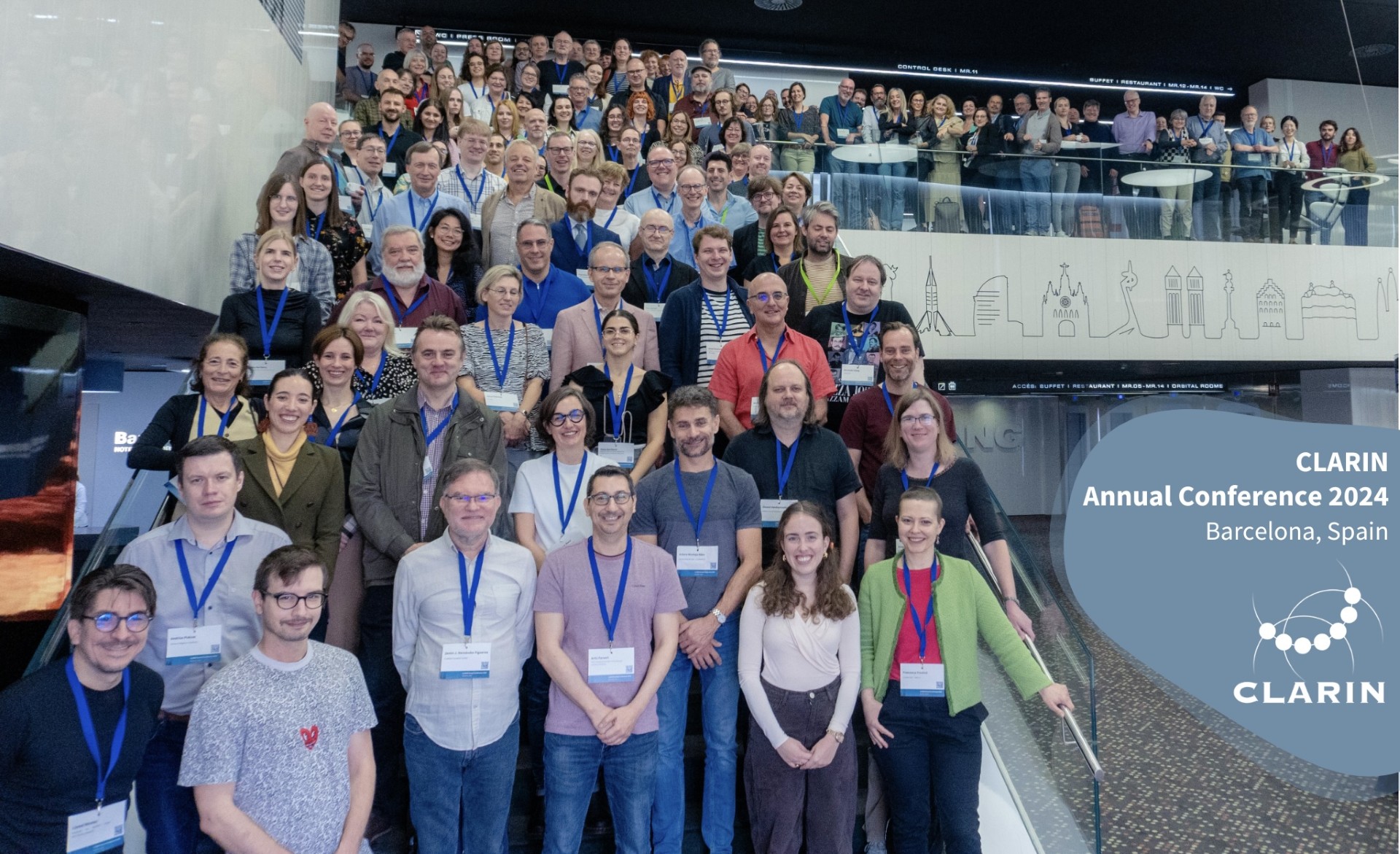
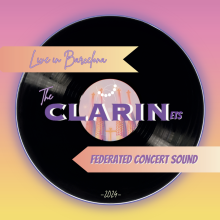
This year, the CLARIN Annual Conference was a hybrid event in Barcelona, Spain. With more than 200 in-person participants and close to 150 online participants, this was an engaging and successful event. In addition to engaging keynote speeches, more than 20 abstract presentations, and interactive poster sessions, the conference also included the very first Building Bridges with Industry session. And as it is now becoming a tradition, during the conference dinner, the CLARINets (i.e., the CLARIN band) delighted the conference participants with a short musical number, followed by a guitar performance by Steven Bird.
Day 1
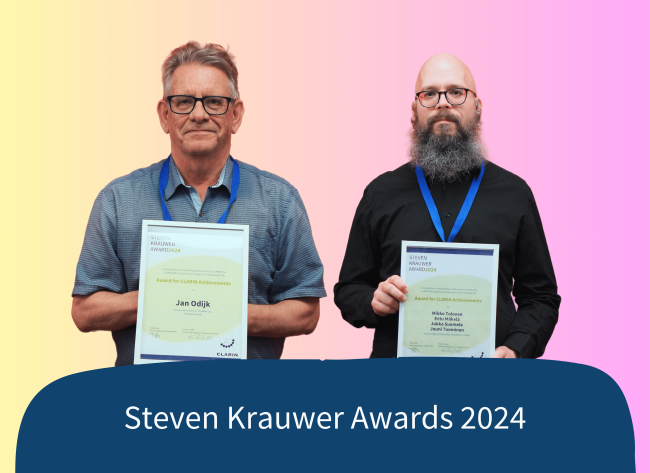
On Tuesday, 15 October, two pre-conference workshops took place: the 'CLARIN 101' session aimed at introducing the CLARIN research infrastructure to newcomers, and the 'Building Bridges with Industry' session, meant to bridge industrial R&D, academic research, and resource infrastructures such as CLARIN . The latter saw the participation of representatives from local industries, specialising in AI and language technologies, healthcare, customer support, and telecommunications.
The plenary conference was opened by Krister Lindén ( Chair), who announced the winners of the 10th Edition of the Steven Krauwer Award. The 2024 recipients of the ward were Jan Odijk and the 'Helsinki Digital Humanities Hackathon' organisers, represented by Jouni Tuominen.
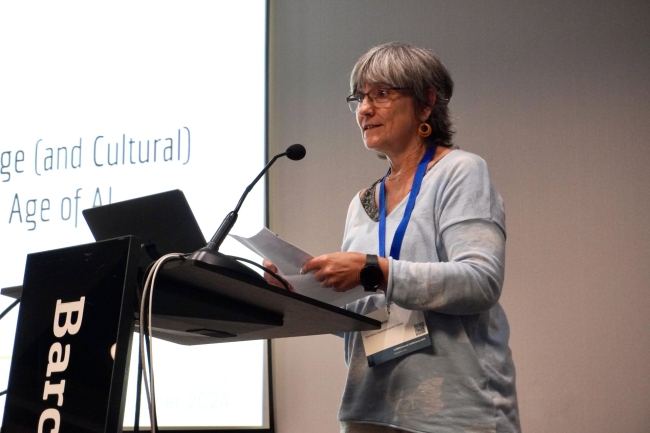
One of the highlights of the first day was the keynote lecture by Maite Melero, senior researcher at the Barcelona Supercomputing Centre, titled 'The future of language (and cultural) diversity in the age of AI'.
Day 2
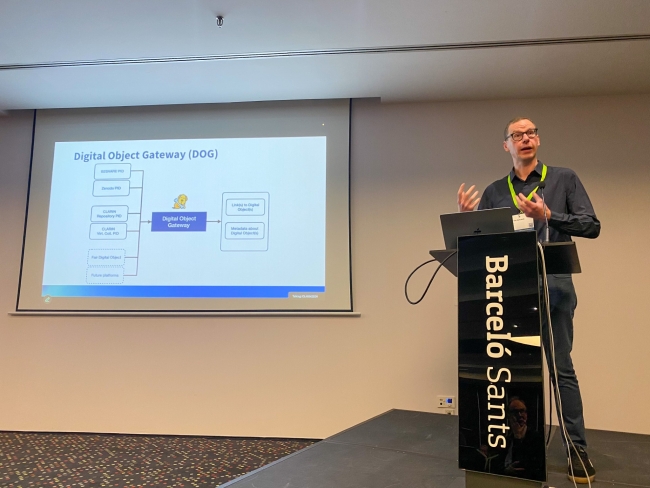
The second day began with presentations by the programme committee chair, the local national consortium, and the various CLARIN committees. Dieter van Uytvanck, CLARIN ERIC technical director, gave a short presentation on the state of the technical infrastructure.
Concluding the morning of the second day, Starkaður Barkarson chaired the presentation of six different papers on the topic of 'Resources and usage'.
In the afternoon, the PhD Student Session was held, dedicated to the work of the young researchers present at the conference. This was followed by two plenary sessions, chaired by Tanja Wissik and Monica Monachini respectively, during which seven abstracts were presented, first on the theme of 'Education', and later on the 'Core CLARIN infrastructure'.
The second day of the conference concluded with the CLARIN2024 Bazaar session, during which more than 25 posters were presented. This session offered an opportunity to the presenters to showcase their ongoing projects to all in-person attendees, as well as exchange ideas.
Day 3
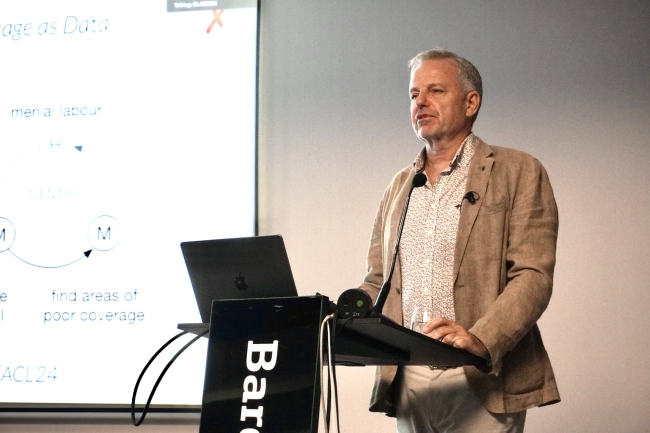
The third day was opened with a session on the theme 'Metadata', chaired by Gunn Inger Lyse Samdal, and four abstracts were presented.
This was followed by the second keynote lecture of the conference, delivered by Steven Bird, research professor at Charles Darwin University, Australia, titled 'Making it meaningful'.
Subsequently, Cristina Grisot chaired the last abstract presentation session, on the topic of 'Centres and resource families', for which three papers were outlined.
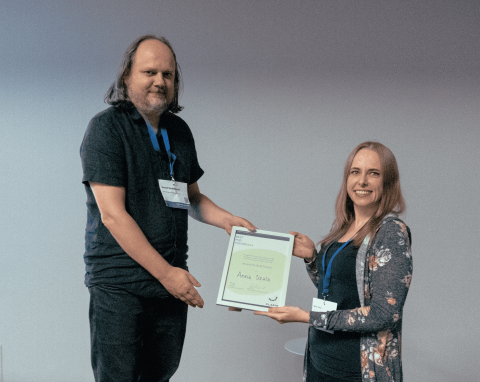
At the closing of the conference, Anna Szala was given the award for the best PhD poster at this year’s conference, titled 'Human conversational behaviour: How much conversation content is actually social'.
The conference closing included a moment of appreciation for Francesca Frontini, who was warmly thanked for all of her work as a member of the CLARIN .
Finally, in the afternoon of the third day, two post-conference workshops took place, the 'Comparable and interoperable corpora of academic texts', and the 'Social sciences & humanities open marketplace'.